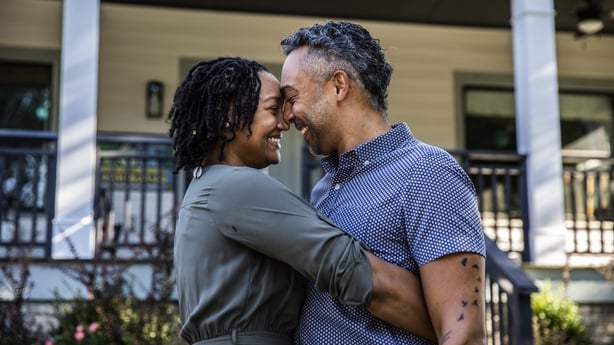Dr. Caroline West is a sex educator and host of the Glow West podcast, which focuses on sex, sexuality, and the body. Here, she writes about understanding the various sides of sex, such as emotional and financial, can help us achieve sexual wellness.
Sex: insert A into B and bingo! Right? Well, not always.
Sexual pleasure is defined differently by different people, and influenced by society, cultural, previous experiences, violence, and education. Desire changes as we age and experiment, and our orientation may also change.
Sexual wellness holds the power to positively influence our physical and mental wellness, but it is often hard to talk about, let alone achieve. I believe we need to understand all the aspects of sexual intimacy in order to truly find what sexual pleasure means to us. Doing so can be called achieving sexual wellness.
The question is, how do we do that in a way that is natural, fun and safe for us?

The physical side of sex is the most obvious aspect. When we think of sex, we often have an idea of what our bodies do. It seems like porn does the most visible work on this - showing us what sex is like and what body part goes where, and how to initiate it.
Except, it doesn't.
Instead, it shows us a fantasy version featuring professionals, and often does not reflect real life. Some also feel that porn gives us the idea of what we 'should’ do during sex, and it is often limited and formulaic.
The pornographic version of sex misses so many aspects of the experience – especially female pleasure and communication – and can be filled with confusing messaging if we're trying to achieve sexual wellness. Consent is negotiated off-screen through contracts, which misses an opportunity to show how hot consent is in real life. Plenty of porn is also tinged with racism, sexism, coercion, and violence, but alternatives do exist that work towards an egalitarian depiction of pleasure.
Genres such as ethical porn, feminist porn, or queer porn offer the potential for showing sex that is grounded in mutual pleasure and respect. Teaching porn literacy as part of sex education also helps viewers understand the differences between real life sex and sex on screen which is often fuelled by profits rather than authentic pleasure. This also empowers us to know what to expect in our own sex lives, enhancing our experience of something that can be extremely fulfilling, but also nerve wracking.
Pleasure also doesn't have to be partnered. Solo sex is excellent for relieving stress, helping us sleep better, making us feel good, and helps us to know what works for us in bed. You can go old school and use your hands, or high tech by shopping for sex toys, which are now available for all genders and abilities.
There should be no stigma to masturbation – it is something that you can do to make yourself feel good and boost your overall health.

One of the biggest aspects of sex is not physical at all, but rather emotional. If we have had previous negative experiences, sex can be a scary thing. Allowing another person to touch our bodies can feel uncomfortable but learning about why we want to have sex can help find comfort levels.
Consent is about saying yes while understanding why we are saying yes. What does sexual pleasure mean to you, and how do you feel about putting theory into practice? Who will you do it with, and why? Is there a pattern of feeling good or bad after sexual encounters?
Sitting with these questions allows us to define what kind of sexual intimacy we really want and empowers us to communicate this. Humans aren't mind readers, and most of us did not have comprehensive sex education, so working together to communicate makes it more likely the experience will be a good one (and worth our time!)
Research has shown that communication during sex increases pleasure for all, so one way to step into sexual wellness is to practice being vocal about what you do and do not want in your sex life. Being told by a crush how hot we are and that they want to get intimate with us? That's a win for everyone.
Conversations about sex, intimacy, and pleasure may be difficult, but not having them is even more difficult as it can lead to an unhappy sex life and unsuccessful relationships.

A core part of feeling secure and connected in your sex life is to be financially secure in it.
When we think about the financial side to sex, we often think of sex work. While this is an important area to think about, money plays a role in access to sexual autonomy. Before contraception was made free for 17–25-year-olds in Ireland in 2022, it was banned until 1980 and expensive for some forms. The contraceptive implant could cost up to €300, and a vasectomy still costs hundreds of euros.
While contraception is now free for 16–30-year-olds as of September 2023, and the HSE and universities dispense free condoms and lube, access is still not universally provided. People over 30 still need contraception, and people with disabilities have extra hurdles to overcome due to employment issues and physical access to services. Not having these supports can rob us of sexual wellness, as each sexual encounter becomes a source of stress and insecurity.
The three-day waiting period for abortion services can mean extra burdens for those needing childcare or time off work. Women can often shoulder the burden of this cost, and young people under 16 may not have the money for contraception or the ability to access it.
Gender equality means no one gender having to face disproportionate costs in accessing sexual wellness services and supports.
These also show us that sex is political too. Until 2015 same sex couples were not allowed by law to legally marry, and until 2017 those with intellectual disabilities were not allowed to consent to sex. This changed in 2017 when the law stated that capacity is key to consent.

For some, sex is a spiritual or religious experience, holding a special place in a person's life. If this is what sex represents to a person, engaging in one-night stands will likely end up being a negative experience.
Knowing what sex means to us is important so that we avoid having sex that does not serve us positively. This is sex that we do consent to but it is not truly wanted on a deeper level, or it leaves us feeling unfulfilled, physically, emotionally, or spiritually.
Understanding what sex means to us is a lifelong process which will vary from person to person. It might be difficult to start but taking an active role in learning about intimacy will pay dividends for our overall happiness. We deserve good sex - whatever that means.
The views expressed here are those of the author and do not represent or reflect the views of RTÉ.
If you have been affected by issues raised in this story, please visit: www.rte.ie/helplines.

